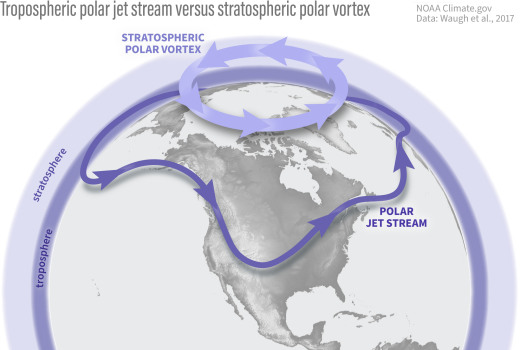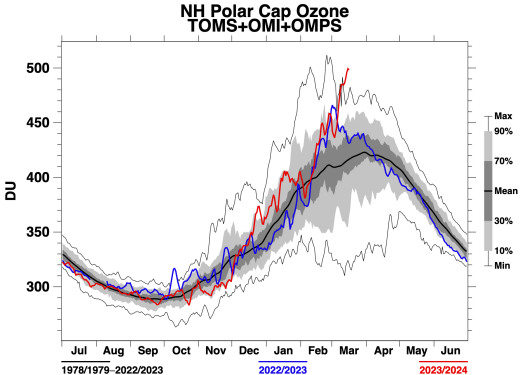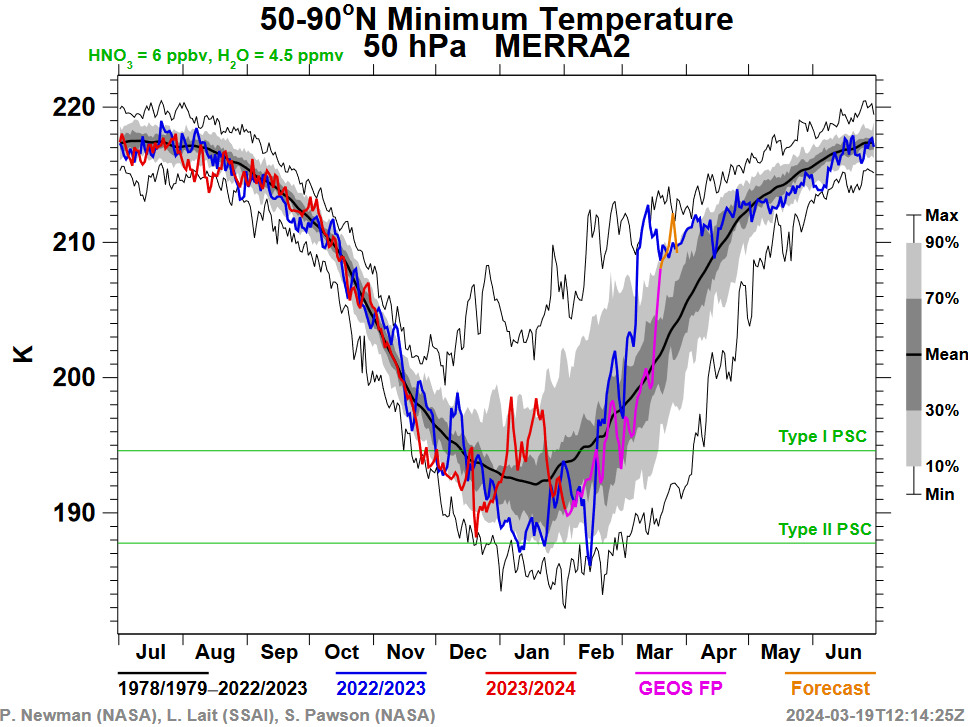The Polar Vortex Is Spinning Backwards https://www.climate.gov/news-features/blogs/polar-vortex/welcome-polar-vortex-blogEarlier this month, atmospheric scientists noticed something unusual in the Arctic stratosphere. The polar vortex was spinning backward.
"The vortex changed direction around March 4th," reports Dr. Amy Butler, author of NOAA's Polar Vortex Blog. "It was a substantial reversal, reaching -20.5 m/s a few days ago, which puts it in the top 6 strongest such events since 1979."

Two weeks later, it is still spinning backwards. What's going on?
"Atmospheric planetary waves have been breaking in the polar stratosphere, increasing its temperature," says Butler. "We call this a 'Sudden Stratospheric Warming' event, and it can cause the vortex to change direction.'"
In recent years, many people have heard the phrase "polar vortex" because of the effect it can have on winter weather. When the polar vortex is strong and stable, it helps confine cold air to polar regions. When the vortex weakens or becomes disturbed, cold air spills out to lower latitudes.
This month's backward vortex has *not* caused an outbreak of winter weather. Instead, it has produced a very strong increase in polar ozone.

"Sudden Stratospheric Warming events accelerate the transport of ozone from the tropics to the poles," explains Butler. "Also, warming air helps prevent chemical ozone loss."
The current 'ozone spike' -- the opposite of an ozone hole -- is the biggest in the month of March since record-keeping began in 1979.
Soon, things could return to normal. The vortex's backward-spin is slowing, and "could become westerly again in about 10 days," says Butler. If so, the ozone spike will subside.

